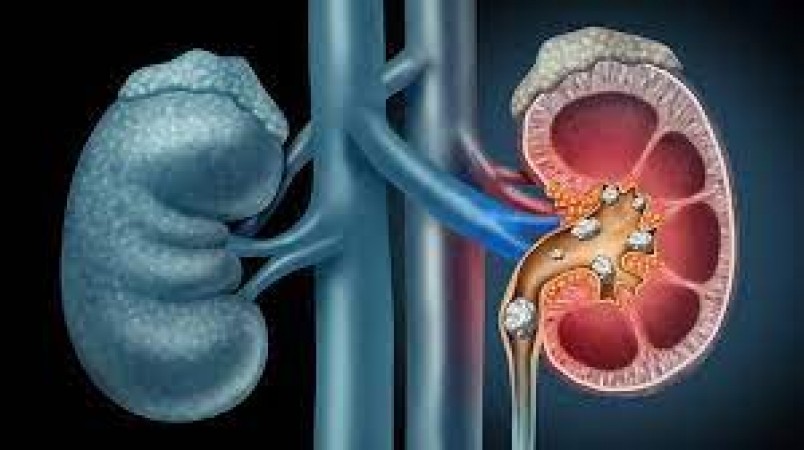
Kidney stones, those small, hard deposits that form in the kidneys, can be both agonizing and potentially dangerous. Taking steps to prevent their formation is crucial for maintaining optimal renal health. In this comprehensive guide, we will delve into each of the ten key factors that contribute to the creation of these perilous stones and discuss in detail how to steer clear of them.
Dehydration is a significant contributor to kidney stone formation, making it imperative to understand the importance of proper hydration. When the body lacks an adequate water supply, urine becomes more concentrated, creating an environment conducive to the formation of crystals. To counteract this, it is essential to maintain a consistent intake of water throughout the day. The general recommendation is to consume at least eight 8-ounce glasses of water daily. However, individual needs may vary based on factors such as climate, physical activity, and overall health. Therefore, paying attention to your body's signals and adjusting your water intake accordingly is key to preventing the silent menace of kidney stones.
Sodium, a component of table salt, is another factor that can contribute to the formation of kidney stones. A diet high in sodium can disrupt the delicate balance of calcium in the urine, promoting the development of stones. To address this, it is crucial to be mindful of sodium intake and make conscious choices about the foods we consume. Processed and packaged foods are often high in sodium, so opting for fresh, whole foods is a practical step towards reducing sodium levels. Additionally, incorporating herbs and spices for flavor instead of relying on salt can make a significant difference in maintaining a healthy sodium balance.
While protein is essential for the body, overconsumption of animal proteins, such as red meat and poultry, can increase the risk of kidney stones. These proteins can elevate levels of uric acid and calcium in the urine, providing a fertile ground for stone formation. Moderation is key when it comes to protein intake. Consider incorporating plant-based protein sources, such as legumes and tofu, into your diet to diversify your nutrient intake and reduce the risk of stone formation.
Oxalates, found in certain foods like spinach, beets, and nuts, can bind with calcium to form crystals in the kidneys. While these foods are nutritious, it's essential to strike a balance. Rather than eliminating oxalate-rich foods, incorporating them wisely into a well-rounded diet can help manage their potential impact. Cooking methods, such as boiling or steaming, can also reduce oxalate content in some foods, offering a pragmatic approach to enjoying their nutritional benefits while minimizing risks.
High sugar consumption has been linked to obesity and diabetes, both risk factors for kidney stones. To mitigate this risk, it's crucial to limit the intake of sugary beverages and processed sweets. Opting for natural sources of sweetness, such as fruits, and being mindful of hidden sugars in packaged foods are practical steps toward maintaining a healthy weight and reducing the risk of stone formation.
Vitamin C is an essential nutrient for the body, but excessive intake can lead to the formation of oxalates, a contributing factor to kidney stones. While it's important not to avoid vitamin C entirely, moderation is key. Rather than relying solely on supplements, obtaining vitamin C through a balanced diet that includes fruits and vegetables ensures a holistic approach to nutrition without unnecessarily elevating the risk of stone formation.
Physical inactivity can contribute to weight gain and metabolic changes, both of which increase the risk of kidney stones. Incorporating regular physical activity into your routine is not only beneficial for overall health but also plays a crucial role in preventing stone formation. Exercise promotes proper metabolism, weight management, and overall well-being, reducing the likelihood of becoming a victim to the sedentary lifestyle's repercussions on kidney health.
Certain medications, including diuretics and antacids, can contribute to the formation of kidney stones. If you are on long-term medication, it's essential to consult your healthcare provider about potential side effects. They can guide you on alternative medications or strategies to minimize the risk of stone formation while still addressing your health needs effectively. Open communication with healthcare professionals ensures a proactive approach to managing medication-related risks.
Contrary to common belief, insufficient calcium intake can actually increase the risk of kidney stones. Calcium plays a crucial role in binding oxalates in the intestines, preventing their absorption into the bloodstream and subsequent excretion in the urine. Therefore, maintaining an appropriate level of dietary calcium is essential for preventing stone formation. Dietary sources of calcium, such as dairy products, leafy green vegetables, and fortified foods, should be incorporated into a well-balanced diet to ensure optimal renal health.
While many factors contributing to kidney stone formation are within our control, genetics and family history are not. A family history of kidney stones may increase an individual's susceptibility to this condition. Understanding your family's medical history allows for proactive measures and regular check-ups. If kidney stones run in your family, it becomes even more critical to adopt a lifestyle that minimizes controllable risk factors, ensuring you remain vigilant about your kidney health. In conclusion, preventing dangerous kidney stones involves a holistic approach that encompasses a well-balanced diet, adequate hydration, and an active lifestyle. By avoiding these ten potential triggers and incorporating healthy habits into your daily routine, you can significantly reduce the risk of experiencing the discomfort and potential complications associated with kidney stones.
Re-polling Goes on at One Polling Booth in Madhya Pradesh's Ater Assembly Constituency
Canada MP Chandra Arya Condemns Hate Crimes Against Hindu-Canadians, Calls for Action
NCERT Suggests Inclusion of Ramayana in Social Science Textbooks